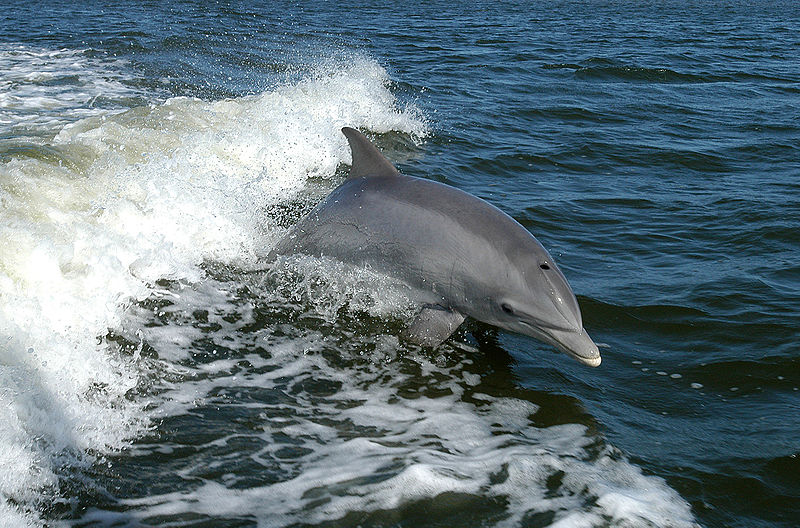
Bottlenose dolphin
The idea of dolphins stealing fish from fisheries comes up a lot and is a concept I’ve always found puzzling. Because if we manage our resources properly and only take a sustainable amount of fish from the sea, which should take into consideration animals that also rely on fish in the sea, then there shouldn’t be a problem. But instead the fishing industry has a pattern of fishing until fish levels are so low that fishing isn’t financially feasible anymore. This happened to the cod fishery off the east coast and continues to happen to fish species across the globe as they are fished to the point of collapsing.
But why take a close look at fishing practices when you can blame everything on the dolphins? Or whatever non-human top predator may be living nearby. So in a recent research study the concept of dolphins stealing from fisheries was put to the test. In a paper titled: “Biomass removal by dolphins and fisheries in a Mediterranean Sea coastal area: do dolphins have an ecological impact on fisheries?” several scientists take a really close look at this issue.
The team calculated the amount of biomass removed by dolphins and fisheries in a coastal area of Greece. And here’s what they found: “The estimated total biomass consumed annually by local dolphin populations – 15 short-beaked common dolphins and 42 common bottlenose dolphins – was 15.5 and 89.8 tonnes, respectively. The total biomass removed by the local fishing fleet (307 fishing boats) was 3469.2 tonnes, i.e. about 33 times greater than that removed by dolphins.”
This ultimately breaks down into dolphins swimming away with 2.9% of the total biomass and fisheries taking 97.1%. These numbers prove beyond any doubt that to blame dolphins for taking fish and fishery related problems is completely crazy. Dolphins rely on fish for their main food source while humans, especially people in the developed world, have many other options. Stop blaming the dolphins!
Its the same in recreational fisheries–its always the birds that are to blame for huge declines in inland fish size and numbers, for example! Nice post- fisheries and aquatic ecosystems are a topic near and dear to my heart!
Why is it when we rely on industry to self-regulate, they usually abuse the system from which they profit? And in terms of fishing and the state of the oceans, toss in a manmade ecological disaster like an oil spill and the problem is exacerbated.